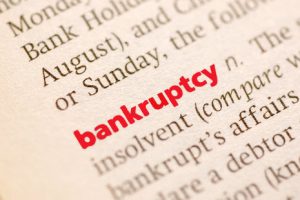What’s the Difference Between Chapter 13 and Chapter 7?

In the year before the most recent bankruptcy reform measure took effect, there were over two million bankruptcy filings in the United States. The numbers have fallen off significantly since then, except during the Great Recession. Nevertheless, hundreds of thousands of your neighbors still use bankruptcy to stop creditor harassment and get a fresh start.
Bankruptcy also protects key assets, such as home equity and retirement accounts. These same exemptions apply whether debtors choose Chapter 13 or Chapter 7.
A good Chicago bankruptcy attorney is always an important part of the process. Attorneys do things that bankruptcy petition preparers and do-it-yourself forms cannot. Attorneys aggressively advocate for their clients in contested discharge matters and also negotiate with creditors when needed.
Chapter 7
In recent years, the Supreme Court has diluted some key protections in the Fair Debt Collection Practices Act. As a result, many debt buyers and bill collectors are more aggressive than ever.
As mentioned, Chapter 7 stops such collection efforts. Section 362 of the Bankruptcy Code also applies to more advanced techniques, such as collection lawsuits and wage garnishment.
To launch a Chapter 7, debtors file a petition and schedules. About six weeks later, the bankruptcy trustee (person who oversees the bankruptcy for the judge) presides over a 341 Meeting of Creditors. Generally, the only people present are the trustee, debtor, and debtor’s attorney.
The trustee usually reviews a few identification and financial documents, like the debtor’s Social Security card and last two or three tax returns. The trustee also asks a few questions to verify the debtor’s identity and clear up any questions regarding any red flags.
About six months later, the judge discharges most consumer unsecured debts, such as credit cards and medical bills. Government-affiliated unsecured debts, such as back taxes and student loans, might be dischargeable in some situations.
Chapter 13
Legally, banks may begin foreclosure or repossession proceedings after just one or two missed payments. So, to take full advantage of the Automatic Stay, it’s important to file quickly. Bankruptcy can stop adverse actions, but it usually cannot reverse them.
Most bankruptcy debtors file the same petition and schedules. However, the trustee’s role in a Chapter 13 is much different. The trustee thoroughly reviews the aforementioned financial documents, as well as the income/expense bankruptcy schedules. Then, the trustee basically puts the debtor on an allowance for either three or five years.
After debtors pay their monthly bills, any extra money goes to repay secured debt delinquency, such as past-due home mortgage payments. Since the Automatic Stay remains in effect, banks must normally accept these income-based repayment plans.
At the end of three or five years, the debtor has a zero past-due balance on all secured debts, and any remaining unsecured debts are discharged. That’s the very definition of a fresh start.
Chapter 13 debtors also have a chance to take advantage of some unique debtor-friendly programs. For example, in some cases, it’s possible to remove a HELOC or other junior house lien. That discharge could save the debtor thousands of dollars a year.
Reach Out to Dedicated Lawyers
There are different kinds of bankruptcy for different kinds of debtors. For a free consultation with an experienced bankruptcy attorney in Chicago, contact the Bentz Holguin Law Firm, LLC. We routinely handle matters in Illinois and Indiana.
Resource:
fool.com/the-ascent/research/personal-bankruptcy-statistics/


